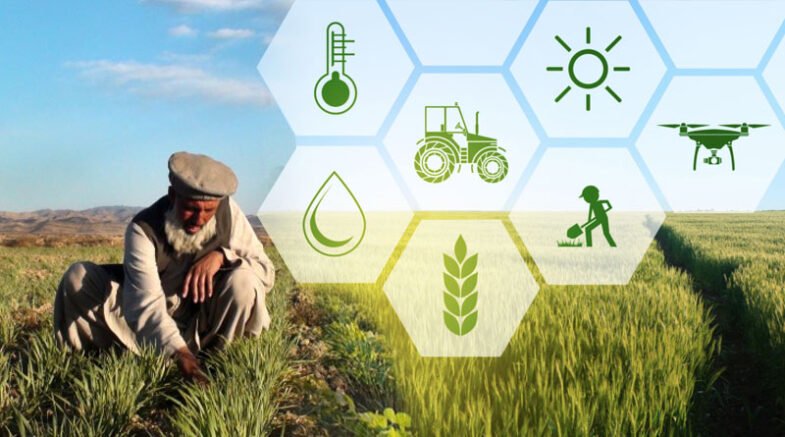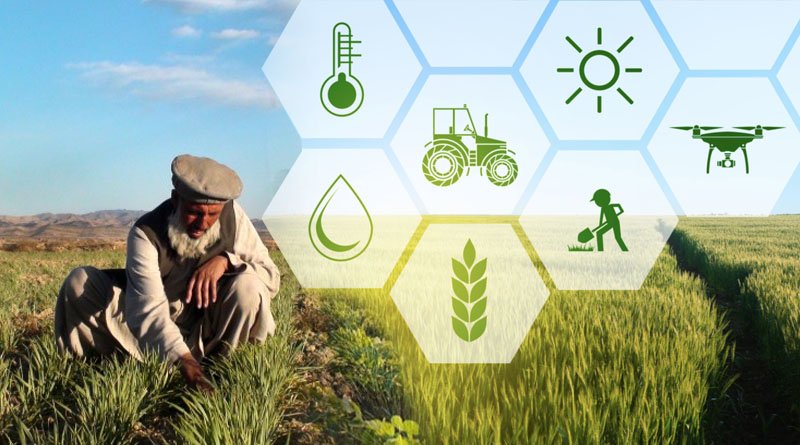Dr. Hanifur Rehman believes that the use of modern techniques, biotechnology practises, and GMOs will help increase per capita productivity in the agricultural sector.

Experts believe that climate-smart agriculture practises can help the Balochistan province ensure food security while also conserving water resources. They claim that focusing on Balochistan’s less developed and underprivileged areas will help reduce migration from rural to urban areas.
Dr. Hanifur Rehman, Associate Professor in the Department of Environmental Sciences at the University of Turbat, believes that the use of modern techniques, biotechnology practises, and genetically modified organisms (GMOs) will help increase per capita productivity in the agricultural sector and ensure food security in Balochistan.
He believes that encouraging the use of high-efficiency irrigation systems (HEIS) such as drip, bubbler, sprinkler, rain guns, and centre pivot will aid in the efficient use of scarce water resources.
Dr. Hanif believes that a comprehensive water policy should be developed that addresses all aspects of water availability, usage, transmission, recycling, and sewage treatment.
He believes the policy should have a time-bound goal that clearly identifies the development interventions needed across the province in the coming years. He claimed that due to a lack of water, most of Balochistan’s lush green pastures have turned into barren lands over the last two decades.
He stated that the underground water level in Quetta, Pishin, Qilla Abdullah, Kalat, Mastung, Khuzdar, Loralai, and other districts of the province is rapidly depleting. Dr. Hanif believes that if artificial intelligence practises are implemented, a large portion of land in Balochistan can be used for agriculture, allowing the province to deliver the same agricultural productivity as Punjab province.
Agriculture, water, and climate are all interconnected, according to Dr. Muhammad Aslam, Dean of the Faculty of Marine Sciences at Lasbela University. He claims that climate change has an impact on water availability and agricultural productivity.
According to him, only 6% of the land in Balochistan is cultivable due to a lack of water, and the root cause of water scarcity is mismanagement of water use in irrigation and the installation of an excessive number of solar tube wells.
“We failed to introduce modern practises in Balochistan due to a lack of research-based agriculture institutes,” he explained. According to Dr. Aslam, the major issue that requires immediate attention for the province’s future socioeconomic development is urbanisation.
Furthermore, he stated that in order to prevent migration from Balochistan’s underprivileged areas, the government must actively support development programmes such as overall water security, energy sufficiency, infrastructure development, and agricultural development in order to provide the same opportunities available in urban areas.
According to Akbar Khan Khajjak, Research Officer at the Water Management and High-Efficiency Irrigation System in Quetta, there is a need to integrate policies governing water laws and flood disaster management in order to increase storage capacity, increase water productivity, and protect the country from devastating floods.
He claims that these steps will boost agricultural productivity and lead to long-term economic development. Balochistan has a total area of 347,190 km2, accounting for 43.6% of Pakistan’s total area, with a cultivated area of 21,000 km2, of which 9,800 km2 is irrigated, 8,000 km2 is flood irrigated, and 2,600 km2 is rain-fed.
He stated that there are vast agricultural areas in the province that can be developed if water is available.
